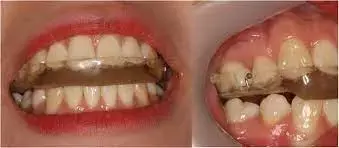- Home
- Medical news & Guidelines
- Anesthesiology
- Cardiology and CTVS
- Critical Care
- Dentistry
- Dermatology
- Diabetes and Endocrinology
- ENT
- Gastroenterology
- Medicine
- Nephrology
- Neurology
- Obstretics-Gynaecology
- Oncology
- Ophthalmology
- Orthopaedics
- Pediatrics-Neonatology
- Psychiatry
- Pulmonology
- Radiology
- Surgery
- Urology
- Laboratory Medicine
- Diet
- Nursing
- Paramedical
- Physiotherapy
- Health news
- Fact Check
- Bone Health Fact Check
- Brain Health Fact Check
- Cancer Related Fact Check
- Child Care Fact Check
- Dental and oral health fact check
- Diabetes and metabolic health fact check
- Diet and Nutrition Fact Check
- Eye and ENT Care Fact Check
- Fitness fact check
- Gut health fact check
- Heart health fact check
- Kidney health fact check
- Medical education fact check
- Men's health fact check
- Respiratory fact check
- Skin and hair care fact check
- Vaccine and Immunization fact check
- Women's health fact check
- AYUSH
- State News
- Andaman and Nicobar Islands
- Andhra Pradesh
- Arunachal Pradesh
- Assam
- Bihar
- Chandigarh
- Chattisgarh
- Dadra and Nagar Haveli
- Daman and Diu
- Delhi
- Goa
- Gujarat
- Haryana
- Himachal Pradesh
- Jammu & Kashmir
- Jharkhand
- Karnataka
- Kerala
- Ladakh
- Lakshadweep
- Madhya Pradesh
- Maharashtra
- Manipur
- Meghalaya
- Mizoram
- Nagaland
- Odisha
- Puducherry
- Punjab
- Rajasthan
- Sikkim
- Tamil Nadu
- Telangana
- Tripura
- Uttar Pradesh
- Uttrakhand
- West Bengal
- Medical Education
- Industry
Menopause linked to mandibular condylar trabecular bone loss affecting periodontal, orthodontic, and implant placement in elderly females: Study

Menopause linked to mandibular condylar trabecular bone loss affecting periodontal, orthodontic, and implant placement in elderly females suggests a study published in the Journal of Oral and Maxillofacial Surgery.
There are conflicting reports on the effects of decreased estrogen levels on mandibular bone microarchitecture. Whether these effects are consistent throughout the mandible is unclear and may have important implications for treatment planning. The goal of this study was to evaluate trabecular and cortical bone microstructure in the mandibular condyle and the mandibular basal bone and compare these sites between premenopausal and postmenopausal women. Participants were recruited for a cross-sectional cohort study at Columbia University Irving Medical Center. Each participant had cone-beam computed tomography taken of their mandibular condyles and the basal bone. Exclusion criteria for the population included a) current chemotherapy or immunotherapy; b) history of bisphosphonate or other osteoporosis therapy; and c) currently pregnant, nursing, or on hormonal birth control.
Results: The premenopausal and postmenopausal groups each had 31 participants, with the following average age: premenopausal = 43.9 ± 6.9 versus postmenopausal = 57.5 ± 7.6 years old; P < .001, and estrogen levels: premenopausal = 91.77 ± 80.13 pg/ml versus postmenopausal = 41.44 ± 61.62 pg/ml; P < .01). Postmenopausal women had significantly greater condylar trabecular separation (0.61 ± 0.18 vs 0.47 ± 0.11 mm; P < .001) and lower trabecular number (1.03 ± 0.18 vs 1.21 ± 0.19 mm−1; P < .001) compared to premenopausal women. There were no significant differences in the basal bone microarchitectural parameters between the menopausal groups. Menopause is associated with mandibular condylar trabecular bone loss but has minimal effects on the mandibular basal bone. This may have important ramifications for treatment planning in advanced-age individuals.
Reference:
Levit M, Finn T, Sachadava S, Matsumura S, Shah J, Cantos A, Yin MT, Wadhwa S. Menopause-Associated Changes in Mandibular Bone Microarchitecture Are Site-Specific. J Oral Maxillofac Surg. 2024 Apr;82(4):485-493. doi: 10.1016/j.joms.2024.01.015. Epub 2024 Feb 1. PMID: 38341183; PMCID: PMC11010363.
Dr. Shravani Dali has completed her BDS from Pravara institute of medical sciences, loni. Following which she extensively worked in the healthcare sector for 2+ years. She has been actively involved in writing blogs in field of health and wellness. Currently she is pursuing her Masters of public health-health administration from Tata institute of social sciences. She can be contacted at editorial@medicaldialogues.in.
Dr Kamal Kant Kohli-MBBS, DTCD- a chest specialist with more than 30 years of practice and a flair for writing clinical articles, Dr Kamal Kant Kohli joined Medical Dialogues as a Chief Editor of Medical News. Besides writing articles, as an editor, he proofreads and verifies all the medical content published on Medical Dialogues including those coming from journals, studies,medical conferences,guidelines etc. Email: drkohli@medicaldialogues.in. Contact no. 011-43720751


